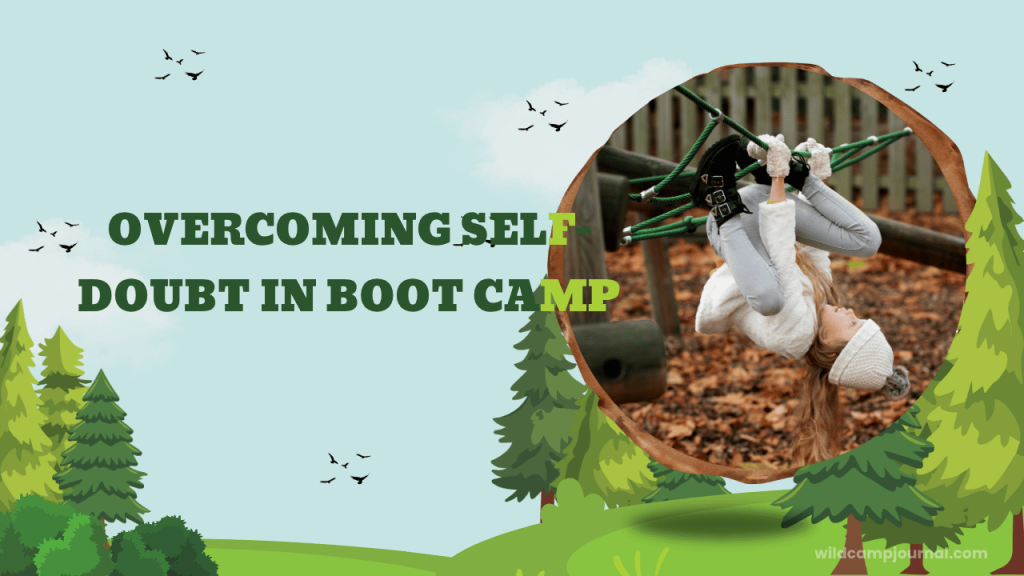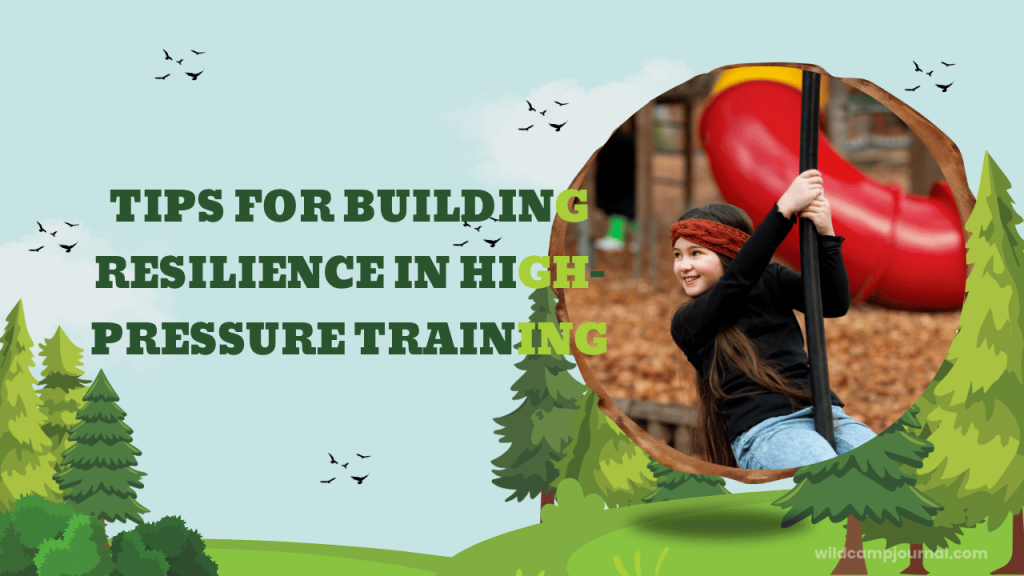Ever felt like you are diving headfirst into something you are not entirely ready for? Welcome to the world of boot camps—an intense, immersive experience designed to transform you fast. Whether you are jumping into a military, coding, fitness, or behavioural boot camp, the road is not easy.
It is gritty, challenging, and at times emotionally draining. But if you’re ready to embrace the grind, the transformation can be life-changing.
Let’s walk you through the rollercoaster ride that is how to thrive in boot camp—what to expect, how to prepare, how to overcome, and most importantly, how to thrive and grow through the process.
Table of Contents
Understanding Boot Camp Dynamics
What is a Boot Camp?
A boot camp is a structured and high-intensity training program. It is all about growth and improvement. Aimed at developing specific skills or behaviours within a short period. There are many types:
- Military Boot Camps: They transform civilians into soldiers.
- Coding Boot Camps: They turn novices into junior developers.
- Fitness Boot Camps: Push your body and endurance to new levels.
- Behavioural Boot Camps: Help instil discipline and corrective behaviour.
Each has unique demands, but the common thread? Pressure + Growth.
Typical Structure and Duration
Boot camps often range from 2 weeks to 6 months, broken into phases like:
- Initiation: Culture shock, adjustment period.
- Core Training: Skill-building, physical & mental push.
- Assessment: Testing resilience and mastery.
- Graduation: Celebrating survival and transformation.
Common Goals and Expected Outcomes
Boot camps are designed to:
- Build endurance, confidence, and discipline.
- Teach real-world, high-demand skills.
- Foster teamwork, responsibility, and mental toughness.
How to Thrive in Boot Camp

Before you even set foot in a boot camp, the groundwork you lay can make a massive difference in how well you perform and how confidently you adapt.
Think of this phase as your personal “mission readiness checklist.” From your mindset to your meals, everything you do ahead of time sets the tone for your success.
Let’s break down what a solid pre-boot camp preparation should look like:
Mental Preparation: Setting Realistic Expectations
First things first: your mindset is your fuel. Too many people walk into boot camp thinking it’s going to be tough—but manageable. Then reality hits like a truck.
Expect to be overwhelmed. Expect moments of doubt. Expect frustration. But also expect growth.
To mentally prepare:
- Visualise tough scenarios—waking up at 5 a.m., being yelled at, failing a task—and imagine how you’d respond.
- Practice self-discipline by waking up early, limiting distractions, and keeping to schedules.
- Read or watch real-life experiences of others who have gone through similar camps. Learn from their mistakes and victories.
The goal? Enter with clarity and resilience, not fantasy.
Physical Preparation: Building Basic Endurance
No matter the type of boot camp, there will be physical demands. Even coding boot camps require long hours of sitting and focus, which requires physical stamina.
If you’re attending a military or fitness camp, this prep is non-negotiable.
What to focus on:
- Cardio training: Start running or brisk walking 3–5 times a week.
- Strength training: Incorporate push-ups, squats, planks, and pull-ups.
- Stretching and flexibility: include yoga or light stretching routines to avoid injuries later.
- Healthy habits: Cut down on junk food, stay hydrated, and aim for 7–8 hours of sleep each night.
You don’t need to be an athlete—just stronger than yesterday.
Emotional Readiness: Managing Stress and Fatigue during Boot Camp

Boot camp isn’t just physically intense; it’s emotionally draining. You’ll miss your comfort zone, your people, and maybe even your sanity on certain days.
So how do you emotionally prepare?
- Acknowledge that fear is normal. Fear of failure, rejection, or embarrassment is part of the process.
- Practice mindfulness or basic meditation. Apps like Headspace or Calm can help you stay grounded.
- Journal your thoughts before leaving. It helps you mentally declutter and reflect.
- Talk to a mentor or loved one about your goals and why you’re doing this—this will be your anchor when things get tough.
Resilience isn’t about suppressing emotions; it’s about managing them wisely.
Practical Preparation: Logistics, Packing, and Communication Plans
Now let’s get into the nuts and bolts. The small stuff that seems minor—until it’s not.
Packing the Right Way
- Review the boot camp’s official packing list (military, coding, or fitness camps often provide one).
- Label everything, especially if you’ll be sharing space.
- Pack essential items only—no distractions or luxuries unless allowed.
- Break in new shoes or boots before arrival to prevent painful blisters.
Communication Plans
- If communication is limited, let your family and friends know in advance.
- Set up emergency contact methods for emergency purposes.
- If you’ll be journaling or vlogging your journey, prep your tools now—a small notebook, durable phone case, or voice recorder can help.
Other Prep Tips
- Handle your finances, job notifications, or academic deferrals before leaving.
- Arrange for transportation and accommodation, if not provided.
- Check any health or vaccination requirements relevant to your boot camp.
Key Challenges Faced During Boot Camp
No matter what type of boot camp you are getting involved in—military, coding, fitness, or otherwise—challenges will hit you hard and fast. And they’ll come in all shapes and sizes: physical pain, emotional fatigue, social stress, and mental overload.
Understanding these challenges ahead of time does not make them disappear, but it gives you the power to face them head-on and build strategies for overcoming them.
Let’s break it all down.
Physical Challenges
Intensity of Training
Let’s be honest—boot camp isn’t meant to be comfortable. You’ll likely face nonstop physical activity, especially in military or fitness programs. From early morning drills to late-night gear checks or circuit workouts, your body will be pushed to its limit.
Expect:
- Long days with little rest.
- Strength training, cardio, drills, or high-pressure tasks.
- Very little time for recovery in the early phases.
It’s designed this way to strip away old habits and rebuild your strength and stamina—physically and mentally. You’re not meant to coast through it. You’re meant to evolve through the pain.
Fatigue and Injury Risks
You’ll be tempted to go all in from Day 1—and that’s exactly when injuries happen.
Fatigue is cumulative. Sore today? Doubled tomorrow. Unless you take care of your body, you’ll hit a wall—fast.
Key risks include:
- Muscle strains
- Shin splints
- Dehydration
- Sleep deprivation symptoms
The solutions?
Listen to your body. There’s a difference between “I’m sore but can push through” and “I’m about to snap something.”
Rest when needed.
Stretch daily.
Hydrate constantly.
Eat like performance depends on it—because it does.
Mental and Emotional Challenges
Homesickness and Emotional Fatigue
Even the strongest personalities miss home. Whether it’s your bed, your dog, or just hearing your mom’s voice—being cut off from your comfort zone can be emotionally draining.
You might feel:
- Isolated, especially during the adjustment period.
- Frustrated by the lack of personal freedom.
- Disconnected from your identity outside boot camp.
That’s normal. It doesn’t mean you’re weak. It means you’re human.
To cope:
- Journal your thoughts—you’d be surprised how therapeutic it is.
- Hold on to your “why”—the reason you signed up in the first place.
- Use positive self-talk to calm your internal critic.
This challenge isn’t about suppressing emotions—it’s about learning to move through them.
Overcoming Self-Doubt in Boot Camp

At some point, you’ll ask: “Am I good enough for this?”
Maybe you’ll fail a task. Get called out. Fall behind. The pressure to perform perfectly can be suffocating, especially in group settings where everyone seems to be watching.
But here’s the truth: You’re not supposed to be perfect. You’re here to learn, improve, and grow.
What helps:
- Shift your self-talk from “I can’t do this” to “I’m still learning.”
- Celebrate small wins—even finishing a hard workout counts.
- Connect with a peer who’s also struggling. Support breeds strength.
Social and Interpersonal Challenges
Team Dynamics and Conflict Resolution
You’re not doing this alone—and that’s both a blessing and a challenge.
Boot camps are melting pots of backgrounds, temperaments, and egos. You’ll meet people you click with instantly—and others who get under your skin.
Expect:
- Clashes in communication styles.
- Different work ethics and paces.
- Moments where you want to go solo but are forced to collaborate.
It’s the perfect space to learn:
- Active listening
- Conflict resolution without drama
- How to lead and follow with grace
In the end, the team becomes your lifeline—but it takes work to get there.
Dealing with Authority in Intense Training Programs and Peer Competition
Here’s the deal: you will be corrected. Instructors, trainers, or team leads may be tough, blunt, and seemingly unfair at times. That’s part of their job—to test your reaction, your ego, and your adaptability.
On top of that, peer competition is real. You’ll notice others doing better, faster, or smoother than you.
But comparison is a trap.
Instead:
- Focus on your own growth curve.
- Use feedback as data, not shame.
- Stay humble. The loudest person isn’t always the strongest.
Boot camp teaches humility, patience, and the art of leading without barking.
Academic and Skill-Based Challenges
Learning Pace and Skill Mastery
Boot camps move fast. If you’re in a coding or tech boot camp, for example, you’ll learn more in one week than most college students do in a semester.
It can feel like:
- Drinking from a firehose.
- Not understanding a thing in class—and falling behind.
- Struggling to keep up with assignments or drills.
But remember: progress, not perfection. Some skills take longer to sink in. Everyone has their “off” days.
Pro tips:
- Break lessons into small, digestible pieces.
- Review daily, even if it’s just 10 minutes.
- Ask for help early. Waiting until you’re drowning won’t make you stronger—it’ll make you stuck.
Handling Feedback and Corrections
At boot camp, your work will be reviewed—often harshly.
And it stings. Nobody likes being told their code sucks, their form is wrong, or they failed to meet the standard.
But you have two choices:
- Take it personally and shut down.
- Take it professionally and level up.
Criticism = information. It’s not an attack; it’s an opportunity.
Practice:
- Not reacting emotionally in the moment.
- Following up with a question: “How can I improve?”
- Implementing feedback fast—that’s where growth lives.
Effective Strategies for Managing Youth Boot Camp Challenges
Let’s be real—youth boot camps are tough. You’ve got tight schedules, physical exhaustion, emotional ups and downs, and the pressure to perform.
Good news: there are strategies that can make this journey more manageable—and even empowering.
Success does not happen by accident. It developed through consistent action, smart habits, and a strong support system.
Tips for Building Resilience in High-Pressure Training

Visualisation and Positive Self-Talk
Resilience is a muscle—the more you use it, the stronger it gets. Boot camp will test your limits, and when it does, your mental strength is what keeps you going.
Visualisation is a powerful technique used by top athletes and performers. Spend 5–10 minutes a day imagining:
- Completing a difficult task.
- Crossing the finish line.
- Hearing your instructor say, “Well done.”
The brain begins to believe what it sees repeatedly. And if you talk to yourself like a champion, you’ll start showing up like one.
Instead of:
“I can’t do this. I suck.”
Try:
“This is hard, but I’m tougher. I’m learning. I’ve got this.”
Remember: your inner voice becomes your outer strength.
Military.com’s boot camp success guide offers simple, proven strategies to mentally prepare and adapt, no matter the challenge.
Time Management and Prioritisation Skills
Balancing Training, Study, and Rest
Time is your most valuable currency during boot camp. If you don’t manage it wisely, you’ll feel constantly behind, exhausted, and overwhelmed.
Here’s how to stay ahead:
- Plan your day in blocks. Allocate specific times for training, study, meals, and rest.
- Use tools like a small planner, a timer app, or sticky notes to stay on track.
- Tackle high-priority tasks first. Whether it’s a skill test or a drill, get the hard stuff done early.
And don’t overlook rest. Lack of sleep affects:
- Focus
- Memory
- Physical recovery
- Emotional stability
So yes—sleep is not optional. It’s your performance fuel.
Effective Communication and Team Collaboration
Listening, Sharing, and Conflict Mediation
Boot camp is rarely a solo journey. You’re going to live, work, and train with a diverse group of people—each with their backgrounds, opinions, and stress levels.
Strong communication can make or break the experience.
Master the following:
- Active listening: Don’t just hear—understand.
- Clear speaking: Say what you mean, and mean what you say.
- Non-verbal cues: Body language matters. Respect others’ space and emotions.
- Conflict resolution: If tensions rise, don’t gossip—address it directly and respectfully.
Be the teammate who:
- Encourages others.
- Shares resources or tips.
- Steps up when needed without drama.
Good teams get things done.
Great teams grow stronger under pressure.
Physical Recovery and Injury Prevention
Proper Nutrition, Hydration, and Rest Practices
You wouldn’t run a race without fuel. Yet many boot camp participants underestimate the importance of recovery.
Without proper recovery, your body can’t perform—or even stay healthy.
Here’s your basic recovery checklist:
1. Nutrition
- Eat balanced meals rich in protein, complex carbs, and healthy fats.
- Don’t skip meals—even if you’re not hungry. Fuel is non-negotiable.
2. Hydration
- Always remember to carry your water bottle
- Aim for 2–3 litres of water a day, more in extreme heat or physical activity.
3. Rest
- Sleep 7–9 hours when possible.
- If your boot camp allows naps—take them.
- Use short recovery breaks (10 minutes of stretching or deep breathing) between sessions.
4. Stretching and Mobility
- Foam rolling, yoga, or simple dynamic stretches before/after workouts can reduce soreness and prevent injury.
The bottom line? Train hard, recover harder. It’s not a weakness—it’s how you stay in the game long enough to win.
Personal Growth Opportunities During Boot Camp
Boot camp isn’t just about physical toughness or learning new skills, but it’s a pressure cooker for personal transformation. When you’re put in high-stress, high-accountability environments day after day, you either crack—or you grow.
And if you’re open to it, the growth you’ll experience isn’t just powerful—it’s life-changing.
Let’s dig into the ways boot camp can help you evolve far beyond the program itself.
Developing Leadership and Responsibility
At some point in boot camp, you’ll be handed a leadership role—even if it’s just leading a small group or overseeing a task.
That’s your moment to step up, even if you don’t feel ready.
Leadership in boot camp isn’t about barking orders—it’s about:
- Taking responsibility when things go wrong.
- Supporting others under pressure.
- Staying calm when the group is panicking.
You’ll learn how to influence without authority, motivate a tired group, and accept your mistakes. These are skills you can carry into a job, relationship, and any team environment.
The surprise?
You might see yourself as a leader for the first time.
Enhancing Problem-Solving and Adaptability
Boot camp = chaos. Something always goes wrong:
- A teammate forgets their equipment.
- A lesson gets skipped.
- Your schedule gets rearranged at the last minute.
- Your body doesn’t perform like you want it to.
You’ll quickly realise that rigid thinking breaks down fast in this environment.
Instead, you’ll develop:
- Creative problem-solving under pressure.
- Quick decision-making without complete info.
- Adaptability—the ability to pivot when Plan A, B, and C fall apart.
These moments may frustrate you at first, but in hindsight, you’ll see them as priceless growth opportunities that sharpen your real-world survival skills.
Building Strong Discipline and Work Ethics
Discipline is one of the most underrated superpowers in life. Boot camp teaches it the hard way.
You’ll be forced to:
- Wake up early.
- Show up even when you’re tired, sore, or mentally drained.
- Follow through on tasks, either its boring or difficult.
And you won’t always get instant rewards or praise.
But that’s the lesson: Do the work anyway.
You’ll learn to:
- Respect routines.
- Finish what you start.
- Take pride in effort—not just results.
This kind of work ethic will set you apart in any career, goal, or hustle.
Improving Emotional Intelligence and Empathy
Boot camp is intense. You’ll be pushed to your limits—and so will everyone around you.
You’ll cry, laugh, fight, bond, and maybe even break down with people you didn’t know a week ago.
Through this emotional rollercoaster, you’ll begin to understand:
- That everyone struggles, even if they don’t show it.
- That frustration often comes from fatigue or fear—not from who someone is.
- That a little encouragement goes a long way.
This is emotional intelligence in team-based training:
- Reading people’s emotions.
- Managing your reactions.
- Navigating social tension with maturity.
The result? You don’t just grow tougher. You grow kinder, more aware, and more human.
Gaining Technical or Specialised Skills
Let’s not forget—boot camps are established to teach something practical.
Whether it’s:
- Military tactics
- Programming languages
- Fitness training methods
- Behavioural control strategies
You’ll walk out with real, applicable skills that can launch you into new careers or life directions.
But here’s what makes boot camp special:
- You don’t just learn these skills—you live them under pressure.
- You practice them daily, get feedback, adjust, and repeat.
- You become competent and confident—not just informed.
That means when you leave, you’re not guessing—you know what to do and how to do it. And that kind of confidence? That’s hard to teach anywhere else.
Leveraging Support Systems
Surviving boot camp is one thing. Thriving in it? That takes support.
You may walk in thinking you have to do everything alone. And while self-reliance is important, no one grows in isolation.
The people around you—coaches, peers, and loved ones—are there to help you push through the chaos, the fatigue, and the doubt.
Let’s unpack how to lean into these support systems without losing your edge.
Role of Coaches, Trainers, and Mentors
Let’s clear something up: your instructors are not your enemies.
Yes, they may yell.
Yes, they may push you to your limits.
But beneath the discipline and structure is a mission—to help you become your best self.
Here’s how to maximise that relationship:
- Listen actively. Don’t just hear what they say—absorb it. Their feedback is gold.
- Ask questions. When something confuses you, speak up. Curiosity is not a weakness.
- Show respect, even under pressure. Their job isn’t to be liked—it’s to help you grow.
In most boot camps, mentors and trainers have been in your shoes.
They understand the struggle. If you let go of ego, you’ll see that they’re one of your greatest learning resources.
Pro tip: Even after camp, many mentors remain valuable contacts for career advice, life decisions, or perspective.
Importance of Peer Support and Accountability
You won’t go through boot camp alone. You’ll be surrounded by people—just like you—who are struggling, striving, and growing.
These peers? They can either make or break your journey.
Here’s how to build a solid peer network:
- Check in on each other. A simple “How are you holding up?” can change someone’s day.
- Study or train together. Shared knowledge builds faster. Teach each other.
- Hold each other accountable. Missed a session? Forgot a task? Call it out—with love.
At some point, you’ll carry someone—and someone will carry you.
That mutual support is powerful. It creates bonds that often outlast the boot camp itself.
Many people leave with not just new skills, but lifelong friendships and allies.
Staying Connected with Family and Friends (When Possible)
In some boot camps—especially military or intensive residential programs—outside contacts are limited. But if and when you’re allowed to connect with loved ones, make it count.
A short message, a 10-minute call, or even a letter can:
- Reignite your motivation.
- Remind you why you’re doing this.
- Bring comfort on the hardest days.
Here’s how to make those connections effective:
- Be honest but hopeful. Let them know it’s tough, but you’re fighting through.
- Ask for encouragement, not pity. A few strong words from home can refill your tank.
- Set communication expectations. Let them know when and how often they can reach you.
Even when direct communication isn’t possible, mentally carrying your family’s love and your purpose in your heart can give you strength on days when you want to quit.
Post-Boot Camp Transition and Sustained Growth
You made it. You crossed the finish line. But here’s the truth nobody tells you: finishing boot camp isn’t the end—it’s the beginning of something even greater.
The days immediately after boot camp can feel disorienting. You’re no longer under strict schedules, constant instruction, or daily pressure.
And as the intensity fades, what rises is a new challenge: How do you integrate everything you’ve learned into real life?
Let’s explore how to transition smoothly and keep growing long after camp is over.
Post-Boot Camp Adjustment Tips
Believe it or not, post-boot camp blues are a real thing. Many people feel a sudden dip in energy, motivation, or even identity.
After weeks or months of structure and intensity, it’s common to feel:
- Lost or directionless
- Unmotivated or burned out
- Disconnected from people who weren’t part of the experience
Here’s how to manage this emotional shift:
- Permit yourself to rest. It’s okay to decompress. Don’t rush to fill the silence.
- Reconnect gradually. Re-enter your social or family circles with patience. You’ve changed—they might need time to catch up.
- Journal your thoughts. Reflect on what you learned, how you’ve changed, and what matters to you now.
Most importantly, don’t ignore your emotions. Talk to someone. Find a support group.
You’re not alone in this transition.
Applying Boot Camp Lessons in Real Life
Boot camp gave you more than physical stamina or new skills. It gave you resilience, structure, grit, and purpose—tools that can transform every part of your life.
Here’s how to apply what you learned:
- At work or school: Show up early, take initiative, handle criticism maturely, and lead when others hesitate.
- At home: Be more intentional with your time, more patient in communication, and more disciplined in your routines.
- In relationships: Apply empathy, teamwork, and active listening—just like you did in your unit or cohort.
The discipline you gained doesn’t belong in a barracks or a boot camp classroom—it belongs in your life, your habits, and your goals.
Goal Setting After Completing Boot Camp

Boot camp pushed you. But now, you will need to elevate yourself.
Without a drill instructor or coach in your ear, your growth depends on self-motivation.
That starts with setting new goals:
- Short-term: Build a new fitness plan, complete a personal project, or apply for a job using your new skills.
- Mid-term: Enrol in advanced training, tackle a leadership role, or start mentoring others.
- Long-term: Map out your ideal future—where you want to be in 5 years—and break it down into steps.
The key? Stay hungry. Growth doesn’t stop because the program ended.
You’re not done. You’re just getting started.
Building a Long-Term Growth Mindset
The most powerful takeaway from boot camp isn’t physical strength or tactical knowledge—it’s the mindset.
You learned how to:
- Adapt under pressure
- Bounce back after failure
- Embrace discomfort
- Keep going, even when it’s hard
That’s what a growth mindset is. And here’s how to keep nurturing it:
- Read, Learn, and Explore. Stay curious about everything.
- Challenge yourself regularly. Take on new skills, new environments, and new goals.
- Surround yourself with ambitious people. Growth is contagious when you’re around the right energy.
- Celebrate small wins. Progress isn’t always dramatic—but it always counts.
Boot camp may be over, but that growth mindset? It’s now part of who you are.
Keep showing up. Keep improving. Keep rising.
Summary
Boot camp isn’t just a training program—it’s a pressure cooker that reveals your limits, shapes your mindset, and moulds your potential into progress.
Whether it was military, coding, fitness, or a behaviour-focused program, the experience pushes you beyond what you thought was possible.
You faced fatigue, self-doubt, failure, and frustration. But you also found discipline, courage, clarity, and community.
Now, you stand at the edge of a new beginning and explore the benefits of boot camp for personal development.
What you do from here—how you apply the lessons, sustain the growth, and chase the next challenge—is what truly defines your journey.
So keep building. Keep growing. Keep becoming.
Because the best version of you isn’t behind you—it’s ahead.
❓FAQs
What’s the hardest part of boot camp?
The mental battle—pushing past your doubts and fatigue—is often harder than the physical grind.
How do you mentally survive boot camp?
Stay focused on your why, practice self-talk, and lean into small wins daily.
Can introverts thrive in boot camp environments?
Absolutely. Introverts bring reflection, observation, and deep focus—qualities that shine under pressure.
How do I stay motivated during a long boot camp?
Set micro-goals. Celebrate tiny victories. And visualize the person you’re becoming.
Is boot camp really worth it for personal growth?
If you’re ready to work, 100% yes. The transformation is often life-changing.



















